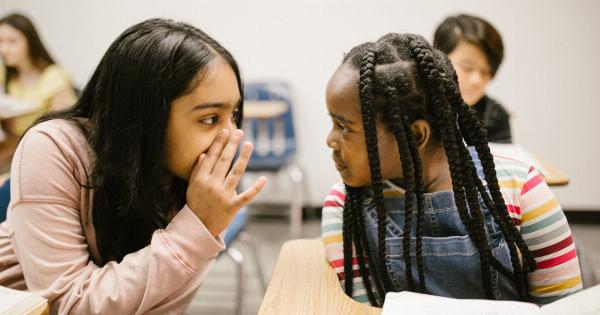Bullying is a serious issue that affects many children in schools and other social situations.
Bullying can have a lasting impact on a child’s emotional well-being, and it is important for parents and pupils alike to understand how to recognize bullying and what steps can be taken to prevent it. In this article, we will provide information about bullying, including its various forms, why it happens, and what pupils and parents can do to put an end to it.
What is bullying?
Bullying can take many forms, including physical, verbal, and emotional abuse. This can include teasing, name-calling, intimidation, or exclusion from social activities.
Bullying is an intentional behavior that is meant to hurt, whether it is physically or emotionally. It can happen at any time, anywhere, but is most common in schools or other social situations.
Why does bullying happen?
There are many reasons why people bully others. It could be because the bully is experiencing some sort of emotional pain or because they want to feel superior. Sometimes, bullies have been bullied themselves and are simply acting out learned behavior.
Whatever the reason, bullying is never justified and should be addressed immediately.
How to recognize bullying?
Bullying can be hard to recognize, especially if it is happening in secret or if the child is too embarrassed to talk about it.
Parents and pupils should be aware of the signs of bullying, including changes in behavior, such as becoming withdrawn, anxious, or depressed. If a child is suddenly uninterested in school or social activities, this could be a sign that they are being bullied.
What can pupils do to stop bullying?
If a child is being bullied, there are steps that they can take to stop it. Firstly, the child should talk to a trusted adult, such as a parent, teacher, or counselor. They should explain what is happening and how they feel.
The adult can then help the child to decide on the best approach. It is important that the child does not respond with violence or aggression because this can make the situation worse and lead to further bullying. Instead, they should try to remain calm and assertive.
What can parents do to stop bullying?
Parents play a vital role in stopping bullying. Firstly, they should talk to their child about bullying, explaining what it is and how to recognize it.
They should encourage their child to talk to them if they are being bullied and promise to take them seriously. If a child reports bullying, parents should listen calmly and supportively, and then take action. This may involve talking to the school or other relevant authority to try and resolve the situation.
Parents can also encourage their child to be assertive and stand up for themselves, while also teaching them kindness, empathy, and respect for others.
Working with the school to stop bullying
Schools also have a responsibility to prevent and address bullying. If a child reports bullying, the school should take it seriously and take steps to investigate the situation.
They should also have a clear policy in place that sets out how bullying will be dealt with, as well as providing resources, such as counseling and support for pupils. Parents should also work with their child’s school to ensure that they are taking steps to prevent bullying.
What if bullying continues?
If bullying continues despite efforts to stop it, parents and pupils may need to take further action.
This could involve seeking help from a professional counselor or therapist who can work with the child to help them build resilience and coping strategies. It might also involve involving the police or other relevant authority if the bullying involves criminal behavior.
Bullying prevention tips
There are steps that parents and pupils can take to prevent bullying. These include encouraging empathy and kindness towards others, teaching children assertiveness and self-confidence, and helping them to understand that bullying is never acceptable.
It is also important to monitor a child’s online activity and teach them about online safety, as cyberbullying is becoming an increasing problem.
In conclusion
Bullying is a serious issue that affects many children in schools and other social situations. It can have a lasting impact on a child’s emotional well-being, but it can be stopped.
Parents and pupils can take steps to recognize and prevent bullying, and schools also have a responsibility to provide resources and support. By working together, we can put an end to bullying and create a safer, more supportive environment for all children.































